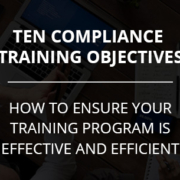Course Description
This course guides you through the four steps associated with handling third party risk: scoping, risk assessment, due diligence and approval/post-approval risk mitigation.The lessons covers major international anti-corruption laws, including the US Foreign Corrupt Practice Act (FCPA) and the UK Bribery Act. Jargon is kept to a minimum. Where possible, stories are used to paint a vivid picture.
Who is this training for?
Employees at all levels need to recognise the risks associated with third parties and how to identify them. This course guides staff through the four steps associated with handling third party risk.Management are trained to identify, minimise and handle corruption risks. General employees learn the role they play in ensuring that due diligence occurs.
Course Outline
Module 1 : Introducing Third Party Risk
•The role of third party due diligence in your organisation’s ABC obligations
•Scope of due diligence
•Key corruption risk factors
•Organisational benchmarks regarding third party risks
•Assessing corruption risk as high, medium or low
Module 2 : Due Diligence and Approvals
•The data collection process
• Key aspects of third parties to research
•Validating research• Monitoring third parties post-approvals
•Supporting due diligence and anti-corruption processes
Module 3 : Due Diligence for Employees
•The role of third party due diligence in your organisation’s ABC obligations
•Key corruption risk factors
•The due diligence process
•Monitoring third parties post-approvals
•The function of whistle-blower policies







